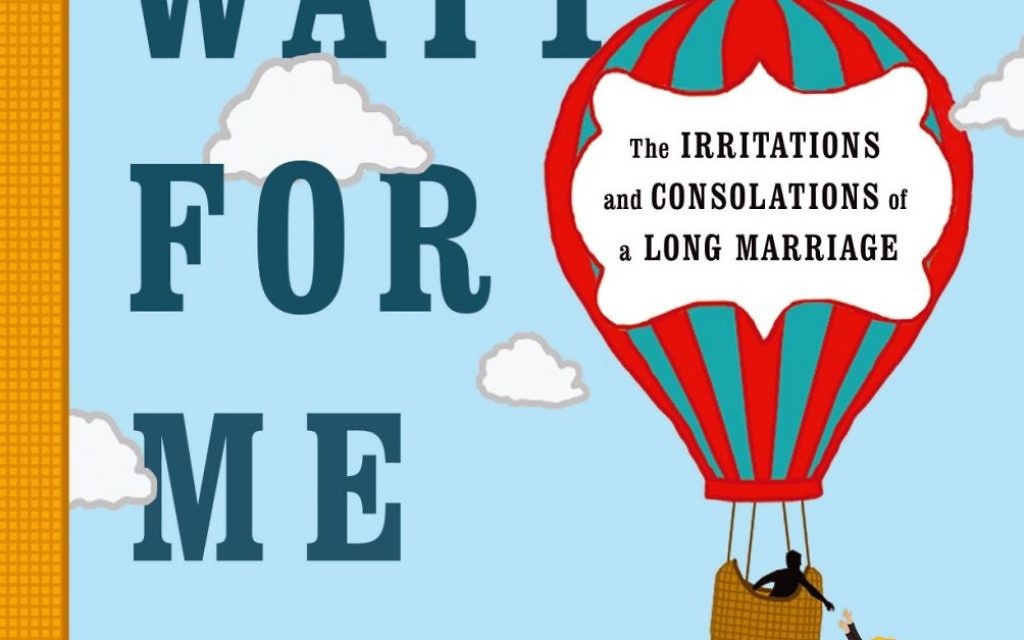Viorst Isn’t Waiting for Wonderful Life
At 84, Judith Viorst is a long way from the horrible, terrible, no good, very bad days of childhood and young parenthood and well into the joys of being a grandparent.
But the writer and poet known as the creator of the miserable little boy Alexander shows that life is still full of bittersweet moments and loving frustrations in her latest book, “Wait for Me … And Other Poems About the Irritations and Consolations of a Long Marriage.”
“I wanted to linger a bit on this time of life after 55 years of marriage,” Viorst said about why she followed 2014, one of the busiest years of her career, with this colorful, quick read. “I wanted to think about what was important, what was still annoying, what made it worthwhile and wonderful.”
Get The AJT Newsletter by email and never miss our top stories Free Sign Up
The book starts with the irritations, such as interrupting each other and hearing the same stories over “and over” (repeated 16 times), then acknowledges the consolations of familiarity and togetherness.
“It’s wonderful,” Viorst said of having a partner in life for more than half a century. “The ties that hold people together through a shared history that long can be very powerful. It’s incredibly comforting to know and be known by someone intimately.”
She expects her contemporaries, especially women, to relate to that special connection, but it doesn’t take 55 years to appreciate a spouse. “I have already heard from women my kids’ age or even younger talk about the irritation. They tell the same story of being interrupted. … Younger readers have found those points of connection.”
She dedicates the book to 13 couples who were married at least 40 years, but one of the spouses, in most cases the husband, has died. Those widowed friends inspired the saddest poem in the book, “The Widow,” for which Viorst drew on her conversations with and observations of those friends, who sometimes struggle to retain their dignity and fill their lives in interesting ways, she said.
Fortunately, she and her husband, Milton, are in good health, and both continue to write. “I don’t know whether writers ever retire,” she said. “I’ve been writing since I was a little girl. I don’t know how not to write.”
Still, half the book takes up the question of how a husband and wife will find each other in the afterlife if there is one. The wife in the poem “Wait for Me” is an obsessive planner and wants to have a conversation to set a meeting place. The husband wants to do anything but have that discussion.
“It’s the reality a lot of people are dealing with,” Viorst said. “I certainly do it with humor.”
For those who want to see the Viorsts as the characters in “Wait for Me,” she noted that she has dark hair, while the woman in the poem is shown as a blonde.
The book’s illustrations, by Stephen Campbell, are integral to the poetry’s storytelling, but they’re a departure for Viorst, whose books typically feature one-color line drawings. Campbell’s vibrant, colorful art looks like painting, Viorst said. “I love these drawings so much.”
Remarkably, she has never met or talked with Campbell. They worked by email. Having made clear that she wanted the drawings to be funny, she would throw him a phrase such as “celestial meadow” or “galaxy ballroom,” and he’d take it from there.
“I could not be more thrilled,” she said.
Viorst said she and her husband haven’t talked about where to meet after death. “The closest I’ve gotten to any kind of imagining,” she said, “I’ll be with the people I love.”
That’s something she gets to do in this life, both with Milton, with whom she goes on more dates these days, and with her children and grandchildren. She noted that the real Alexander, the inspiration for the boy eternally having the horrible day, now has three children of his own. When they act up and he wonders where they get that behavior, Viorst said, she smiles and offers a loving “nah-nah” taunt.







comments